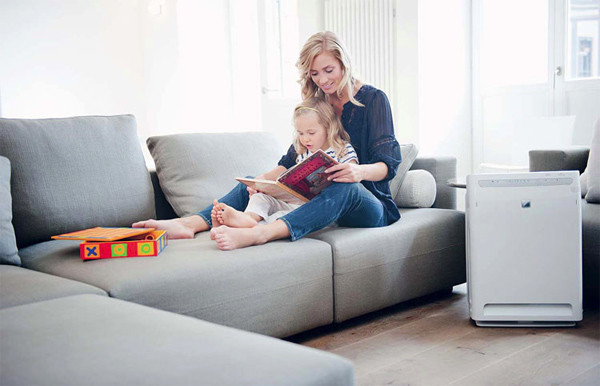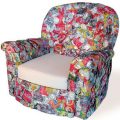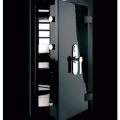 Which air purifier to choose?Photo: Getty. The old grandfather’s way - wet cleaning and airing save the best from dust and odors. Allergists are also fighting for him. But this method is not always suitable: life in a big city, a house at a busy intersection, a lot of work - time and energy for regular floor cleaning and dusting is not always the case. In this case, the air cleaner will help. How and what air cleaner to choose? Let's go from the queries: what is needed?
Which air purifier to choose?Photo: Getty. The old grandfather’s way - wet cleaning and airing save the best from dust and odors. Allergists are also fighting for him. But this method is not always suitable: life in a big city, a house at a busy intersection, a lot of work - time and energy for regular floor cleaning and dusting is not always the case. In this case, the air cleaner will help. How and what air cleaner to choose? Let's go from the queries: what is needed?
Get rid of dust
If you need to get rid of dust, pollen, hairanimals and other suspended particles, take a closer look at air purifiers with an electrostatic filter - this is the simplest option for combating dust. The principle of operation of such a filter: dust passing together with the air between metal plates with an electrostatic field is attracted and settles on them. Pros: - the plates are washable, - air purifiers with an electrostatic filter are among the most budget models. Cons: - electrostatic filters disrupt the balance of positively and negatively charged particles in the air, which does not have the best effect on human well-being. According to experts, air purifiers with a HEPA filter, and even better, a HiperHEPA filter, will provide the finest cleaning from dust and suspended particles. Operating principle: The HEPA filter is made of a long sheet of fibrous material folded like an accordion, and is designed to filter even small particles. Pros: HEPA filters are washable. Cons: - HEPA filters can be replaced, which will require additional costs, - models with HEPA filters are more expensive.
Get rid of odors and bacteria
If you need to clean the air from harmful impurities,chemical compounds (formaldehyde from furniture, nitrogen dioxide from the stove, tobacco smoke), bacteria, viruses and gases (for example, carbon monoxide, which flies from the street from the road), choose air purifiers with a photocatalytic filter. The principle of operation: a titanium dioxide coating is applied to a paper, aluminum or chemical fiber base. Under the influence of ultraviolet rays, titanium dioxide forms natural oxidizers - ozone and higher oxides, which, as a result of chemical interaction with other - harmful - substances, decompose them into simpler and less harmful particles. Thus, the air is cleared of dangerous pollutants. These same oxides destroy the outer shell of microorganisms, preventing them from multiplying. Pros: - photocatalytic filters last for several years, - easy to maintain: just vacuum once every six months, but you can't wash with water. Cons: not cheap. Air purifiers with an ionizer, humidifier, etc. are models with a HEPA or photocatalytic filter and additional filters and functions that provide ionization, ozonation, humidification, deodorization, and air disinfection. Which one to choose is up to you, based on your circumstances and tasks.
Please note:
- When buying an air cleaner, give preference to the one whose power is 2–3 times larger than the size of the room for which you are buying it. This will ensure quick and high-quality air cleaning.
- Before buying, get answers to the following most common consumer questions:









